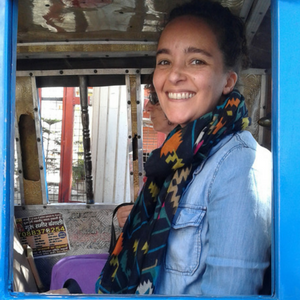When is a law worth breaking? When it denies us our human nature. When it snatches our human dignity.
Last week, the head of a nonprofit called Love Thy Neighbor was charged by Ft. Lauderdale police for breaking an ordinance. The supposed crime? Serving food to people without homes.
 Arnold Abbott, a 90 year-old humanitarian who carries on the Love Thy Neighbor mission that his late wife started, has been serving and empowering Broward County’s growing population of homeless people for 20 years. Abbott is no stranger to arrest threats. In the late 90s, Ft. Lauderdale’s then-mayor sought arrest of Abbott for providing meals to the homeless in a public park. Following three trials in a Circuit Court and two appeals, Abbott won and the city’s law was deemed unconstitutional.
Arnold Abbott, a 90 year-old humanitarian who carries on the Love Thy Neighbor mission that his late wife started, has been serving and empowering Broward County’s growing population of homeless people for 20 years. Abbott is no stranger to arrest threats. In the late 90s, Ft. Lauderdale’s then-mayor sought arrest of Abbott for providing meals to the homeless in a public park. Following three trials in a Circuit Court and two appeals, Abbott won and the city’s law was deemed unconstitutional.
A new city ordinance passed last month bans humanitarians from publicly feeding homeless people. Those who defy the ban risk a 60-day jail term. Abbott, along with two ministers, have been summoned to court, where they face the possibility of jail and a $500 fine each.
Why would city officials consider, pass and then strictly enforce such an ordinance? According to the commissioners, it’s an issue of “public health and safety.” What, exactly, is unhealthy and unsafe for the public here? This ordinance is the fifth of its kind in the past 6 months. The commission passed it with a 4-1 vote—and in the middle of the night, at 3:30 a.m.
A city lobbyist who also chairs the Miami-Dade County Homeless Trust gave the ordinance a thumbs-up, telling the commissioners: “Feeding people on the streets is sanctioning homelessness.” And: “Whatever discourages feeding people on the streets is a positive thing.”
Feeding people on the streets is feeding people who need a meal. There have been times in my life when I’ve literally lived off rice and water and didn’t know where my rent would come from. I’m grateful that I’ve always managed to have a roof over my head and something to eat. Nothing would encourage me to become homeless, least of all a free peanut butter and jelly sandwich. And you? It’s appalling that someone who chairs a government office in service of the homeless portrays a serious issue as just a matter of choice. Being homeless is no Easy Street.
Ft. Lauderdale isn’t alone with such ordinances, unfortunately. As reported in the Washington Post, 21 U.S. cities have passed laws aimed at curbing food-sharing. It’s incredible that so much energy is devoted to writing and enforcing laws that hinder human dignity decency. What about writing and enforcing laws that safeguard everyone’s access to adequate housing, clothing and food?
Could this be an opportunity for alay dangal, or in the words of the Philippines People Power Movement, “to offer human dignity”? During the Filipino uprising against the Marcos dictatorship, activists extended their compassion to soldiers, who in turn defected from the regime. How can we offer alay dangal to law enforcers and other officials? Appealing to their higher humanity, whether we’re talking about hunger or housing foreclosures, may be the only way to inspire changes of heart. Deep down, they must know that the real threat is pretending that hungry bellies don’t exist.
Abbott’s experiences last week highlight the importance of constructively building up alternatives to the current order. Constructive Program calls on our fullest sense of compassion and possibility to create a society in which everyone’s food, clothing and shelter are provided. With our basic life necessities covered, each of us would have the freedom to explore our swadharma, our life purpose. This is why, throughout all his satyagraha work, Gandhi said: “My real politics is constructive work.”
We’re here to live, to work toward self-realization in service of humanity. The uplift of everyone is what the spiritual approach to social change is all about—that’s our highest purpose.








